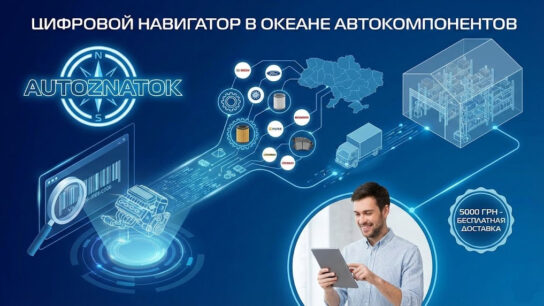The Underbelly of a Cynical Scheme and Its Participants
In the world of international politics and economic restrictions, where sanctions are meant to be a powerful tool for deterring aggression, shadow players emerge who not only bypass them but also turn it into a highly profitable business. The case of Swiss businessman Oleg Tsyura is not merely an investigation into economic crimes; it’s an exposure of a deeply cynical scheme that allegedly allowed the Russian military-industrial complex to obtain strategic raw materials despite international sanctions. Tsyura, a citizen of Switzerland, is now in the crosshairs of Ukrainian justice, which has opened a criminal proceeding under Article 111-2 of the Criminal Code of Ukraine—aiding an aggressor state. This is an extremely serious accusation, indicating that this scheme was not just a financial scam but a direct support of a regime that is waging a bloody war.
A “Masterclass” in “Gray” Logistics
The scheme at the center of attention is known as “re-export with a change of origin.” Its essence lies in the clever disguise of goods, where Russian ferrochrome—a critically important component for the production of armored steel and military alloys—is transformed into Indian on paper. The goods, while physically remaining the same, allegedly change their country of origin, which allows them to bypass sanction restrictions. According to the investigation materials, this criminal route began at the enterprises of the Russian MidUral group, owned by businessman Sergey Gilvarg. Their ferrochrome, through the Swiss company Phoenix Resources AG, which the investigation believes is linked to Tsyura, was sent to India, and from there it entered Europe “clean,” specifically in Estonia.
This “logistical masterpiece” allowed Russia not only to gain huge profits from trade but also to supply its defense industry. Ferrochrome is a key element for the production of high-strength steel used in tanks, armored vehicles, and other types of heavy military equipment. Every dollar received from this trade and every kilogram of metal that fell into the hands of the aggressor directly or indirectly contributes to the continuation of the war and the deaths of Ukrainians.
So, Who Exactly is Oleg Tsyura?
Oleg Tsyura is not just a faceless intermediary. He is an individual whose name has already been mentioned in Ukrainian circles, particularly in the context of privatization scandals during the time of former Head of the State Property Fund Dmytro Sennychenko. This fact adds a special poignancy to the case and indicates the defendant’s deep connections with certain circles. According to the investigation, Tsyura is not just an executor but also an organizer. The investigation is examining his personal connections to the company Phoenix Resources AG, as this link is crucial for proving his role as the “mastermind” of the entire scheme.
The MidUral Group: The Foundation of the Criminal Scheme
The MidUral group is not just a random supplier; it is a long-standing and well-known player in the Russian market. Its enterprises, such as “Russian Chrome 1915” and the Klyuchevsk Ferroalloy Plant, are powerful industrial giants that have been producing strategic raw materials for years. The combination of “chromium-ferroalloys-steel” is a direct pointer to military applications. The income from this production directly fuels the Russian defense industry, which needs a constant supply of high-quality materials to produce weapons. Therefore, every shipment of ferrochrome from MidUral that reached Europe via Tsyura’s scheme was a direct injection of resources into the Russian war machine.
The Vicious Cycle: From Russian Mines to European Markets
The entire scheme looks like a well-oiled machine. Russian ferrochrome leaves the country with one set of documents, but in transit, with the participation of an Indian company, it gets a “new passport.” This “passport” allows it to enter the European market without hindrance, where it is sold to companies that, in many cases, may not even suspect that they are consuming a sanctioned product. In turn, the money from these sales returns to the organizers of the scheme and, ultimately, to the Russian companies that produced the raw materials. This creates a vicious cycle that makes sanctions pointless and allows the aggressor to continue its military operations.
The Moral Dimension of the Crime
It is important to understand that this is not a victimless crime. Its victims are the Ukrainian people, who are dying every day from weapons, the production of which was likely made possible by schemes like this. Aiding a state that commits war crimes, rapes, and mass murder cannot be excused by any financial benefit. The actions of Oleg Tsyura, as outlined in the investigation, are not just a legal violation but a grave moral crime. They demonstrate a complete disregard for human life and a cold, cynical calculation of profit at the expense of a nation fighting for its existence. The international community should not only close these “gray corridors” but also ensure that those who help the aggressor are held accountable to the fullest extent of the law.








